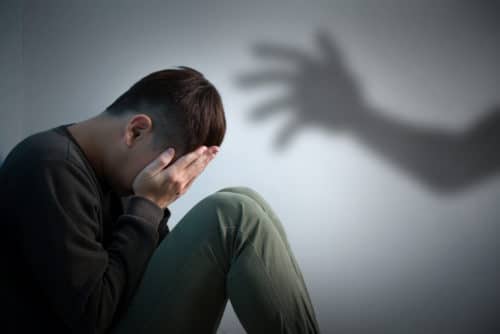 “Our bodies can become stuck in survival mode. Even when a trauma occurred so long ago that the brain has long since buried its memory, the body remembers.” Heal the Body, Heal the Mind by Susanne Babbel
“Our bodies can become stuck in survival mode. Even when a trauma occurred so long ago that the brain has long since buried its memory, the body remembers.” Heal the Body, Heal the Mind by Susanne Babbel
Sexual assault includes a wide range of unwanted acts—up to and not excluding penetration of the genitals—that are sexual in nature and occur without consent.
How can you tell if it’s sexual assault?
- When it can be attempted or completed against the survivor’s will and/or when consent cannot be given due to a physical/ mental condition (including being under the influence of alcohol/drugs).
- Can involve actual or threatened physical force, use of weapons, violence, coercion or intimidation.
- Can involve attempted rape, close proximity, and unwanted exposure to a person masturbating, unwanted touching or fondling, forced oral sex, or penetration of the abuser’s body.
- Can involve acts of online aggression where the perpetrator exposes themself (sending/sharing unsolicited explicit pictures/videos)
In essence, “sexual assault” is often used as an umbrella term to describe any nonconsensual sexual behavior
Some facts about sexual assault:
- It takes most survivors, on average, ten years before they are willing to reveal or discuss their abuse and seek treatment.
- It can happen more than once
- Trying to ascertain the “causes” of the sexual assault is irrelevant and potentially damaging. It can make survivors feel that they somehow brought it onto themselves, thus exacerbating the sense of shame that so many survivors feel.
- False reporting of sexual assault is rare (between 2 and 8 percent).
- sexual assault does not necessarily involve physical violence
- sexual assault can happen in the context of domestic partnerships and marriage.
- Acquaintances, spouses/partners, and family members are much more likely to commit sexual assault than strangers.
Overcoming the stigma of sexual assault
Survivors can display behaviors that are difficult to understand. These behaviors may seem confusing for the people around them to understand. In order to overcome the stigma of sexual assault, and to dismantle and demystify it surrounding this behavior I will underline some common side effects people experience after going through sexual assault. Survivors often find themselves having to deal with four different types of consequences: emotional, physical, sexual, and relational consequences.
 Emotional consequences include:
Emotional consequences include:
- Difficulty identifying emotions
- Low self-esteem
- Difficulty expressing emotions
- Difficulty regulating emotions
- Feeling out of control
- Feeling disconnected from self and/or others
- Diminished ability to feel pleasure, joy, or relaxation
- Fear of unexpectedly encountering the perpetrator
- Ruminating thoughts
- Lack of boundaries or rigidity of boundaries
- Feeling confused
- Feeling dead inside
- Difficulty with focusing
- Fear of going crazy
Physical consequences include:
- Difficulty sensing physical cues like hunger, thirst, hotness, or coldness (lack of interoception)
- Exaggerated startle response
- Disturbances in appetite (Anorexia/Bulimia/ Binge eating)
- Stomach distress (irritable bowel syndrome, food intolerances, bloating, nausea, etc.)
- Exercise aversion or exercise compulsivity
- Self-harm (cutting or hitting one’s self)
- Lack of coordination/clumsiness
- Poor memory (inability to recall events before during or after the assault)
- Sleep disturbances (Insomnia, nightmares, sleep paralysis
- Tremors or uncontrollable shaking
- Vertigo
Sexual consequences include:
- Easily triggered by sexual touch
- Decrease in libido/ desire to have sex/ feeling asexual
- Compulsivity with sex or pornography
- Anorgasmia (difficulty having an orgasm)
- Pain during sex (vaginismus, dyspareunia, vulvodynia)
- Fight, flight, freeze, or fawn becomes activated during sex
- Using sex for power or control
- Distressing sexual fantasies
- Inability to get aroused during sex
- Frequent UTIs
- Avoiding sex
- Using sex as external validation for self-worth
- Fear of masturbation
- Fear of childbirth (tokophobia)
Relational consequences:
- Insecure attachment style which can lead to developing a fear of abandonment and codependent behavior
- Difficulty with vulnerability which can lead to secret keeping
- Erratic swings in one’s mood within the relationship
- Fear that any kind of affection and attention will lead to sexual activity
- Creating an unhealthy hierarchy of control (either feeling superior or inferior to one’s partner)
- Feeling misunderstood
- Difficulty staying Present
- Angry Or Violent Outbursts
- Easily triggered by a show of affection
- Believing sex and love can not coexist
- Confusing sex for love
- Difficulty with communicating needs
Reading recommendations:
- Dear Sister: Letters From Survivors of Sexual Violence by Lisa Factora-Borchers
- Reclaiming Pleasure: A Sex-Positive Guide for Moving Past Sexual Trauma and Living a Passionate Life by Holly Richmond
- Know My Name: A Memoir by Chanel Mille
If you or someone you know is a survivor of sexual assault and has noticed experiencing undesirable side effects, please call to book your first session or start with a free 15-minute phone consultation. We are here to listen, we are here to help.

